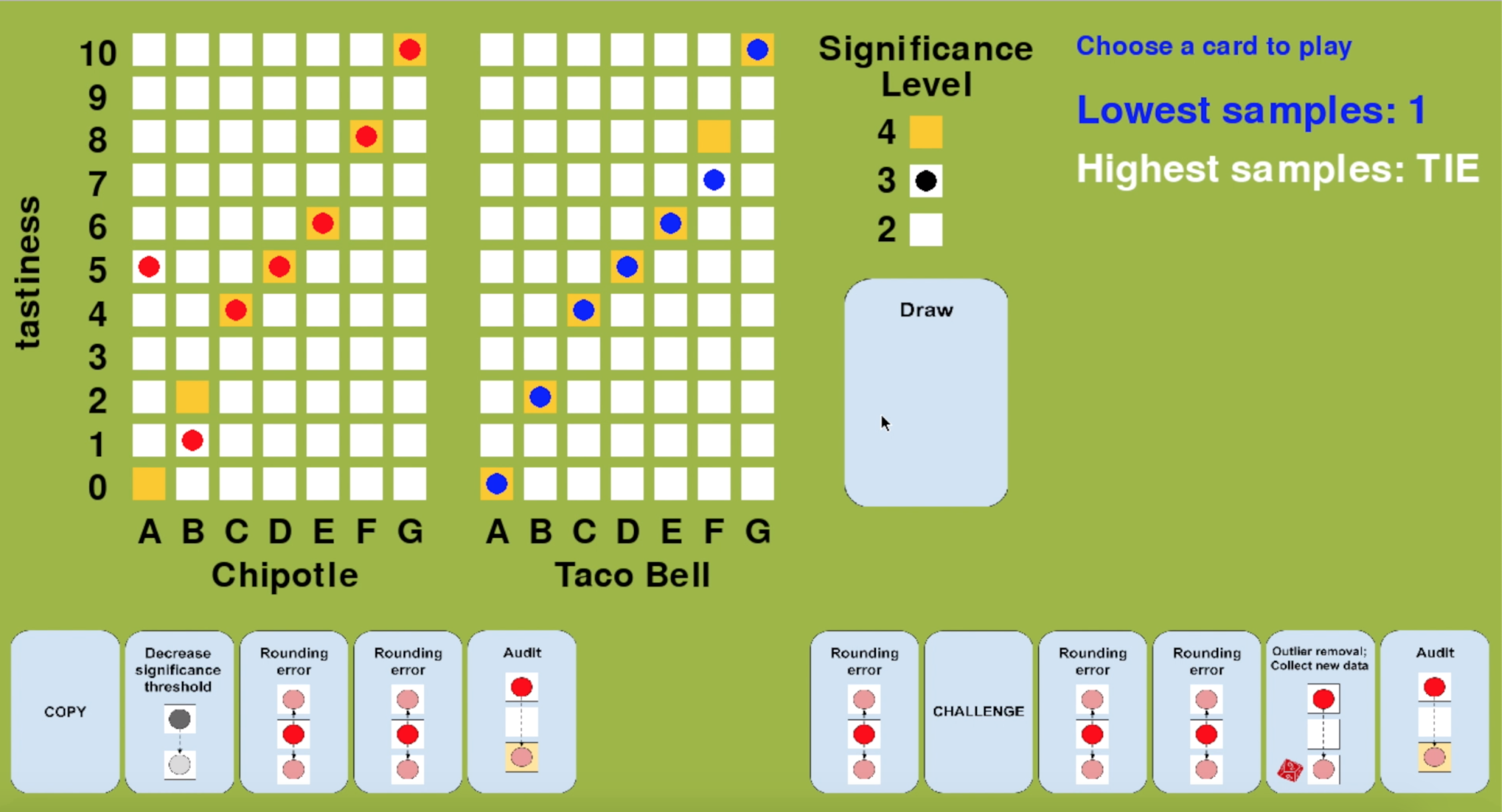p-hacking: The board game
December 30, 2020
Often it’s tempting to point at a peer-reviewed study or an analysis of data as objective evidence for a given conclusion. However, I think it’s helpful to acknowledge that the conclusion of an analysis may depend on subjective choices or interpretation of context.
This problem was the inspiration for the board game I developed: p-hacking. In this game, you are a researcher hoping to publish an impactful paper that supports your theory. However, your opponent is another researcher with the exact opposite theory. After a passive-aggressive debate at a conference symposium, you two have become nemesis collaborators, working together to collect a single dataset that will prove one of you right, and the other wrong. This will determine who secures a prestigious publication, future funding, and ultimately survival in academia. You win if at the end of data processing, your theory correctly predicts the population with the significantly higher values.
See an overview of the game in this video, or read the short rule book in this doc.
You can play the game on playingcards.io here, or download a copy here.
